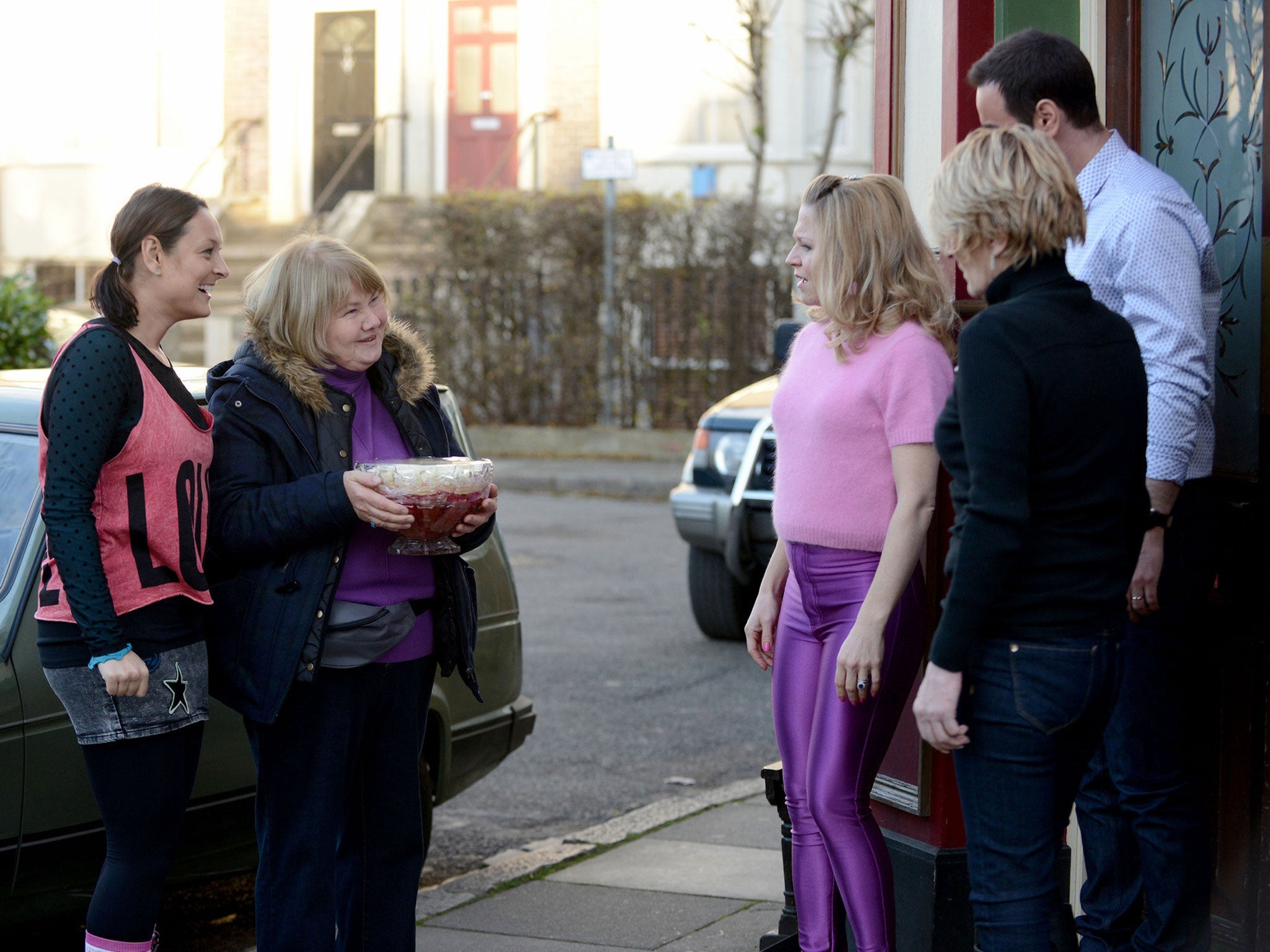Ending the watershed is crossing the line of our TV culture
These days we can watch any show we like, whenever we like


Your support helps us to tell the story
From reproductive rights to climate change to Big Tech, The Independent is on the ground when the story is developing. Whether it's investigating the financials of Elon Musk's pro-Trump PAC or producing our latest documentary, 'The A Word', which shines a light on the American women fighting for reproductive rights, we know how important it is to parse out the facts from the messaging.
At such a critical moment in US history, we need reporters on the ground. Your donation allows us to keep sending journalists to speak to both sides of the story.
The Independent is trusted by Americans across the entire political spectrum. And unlike many other quality news outlets, we choose not to lock Americans out of our reporting and analysis with paywalls. We believe quality journalism should be available to everyone, paid for by those who can afford it.
Your support makes all the difference.BBC Director-General Tony Hall says the 9pm watershed is increasingly irrelevant and will be gone within a generation because children are able to watch anything they want at any time of day. The adult content of nudity, swearing and violence restricted to after the cut-off point is accessible online at all hours of the day and night – unless parents have imposed controls on their children’s computers or devices. The message from Lord Hall seems to be that the internet is a free-for-all, so why bother?
This makes me nostalgic for the 1980s, when I was growing up. The 9pm watershed loomed like a big red line in our house. At the age of 10, I had to be in bed by 9pm, a deadline which was as much about shielding me from grown-up telly as making sure I had a good night’s sleep. But on Tuesdays, my sisters and I negotiated a special dispensation from our parents so we could watch The Young Ones at 9pm. There was no nudity, and the violence was slapstick, not horror. But oh, the swearing! It was so rare to hear swear words on TV that a frisson of suppressed giggles rippled through our sitting room at these forbidden words (although nowadays the language on The Young Ones seems very tame). The important thing is that we knew they were naughty, because it was “late” in the evening.
The way we access TV now – through BBC iPlayer, YouTube or Netflix – means that watching anything is possible round the clock. Yet on the former terrestrial channels like BBC1 and ITV1, the 9pm watershed is still in force – and so it should be. I know that pre-9pm EastEnders, with its grim plot lines of rape and other hard-hitting fare, makes the watershed elastic. Yet the mid-evening soaps have always been like this: Brookside was tackling sexual violence and even murder, complete with burials under the patio, 30 years ago.
I wouldn’t let my four-year-old daughter watch EastEnders because it would upset her. I am not the next Mary Whitehouse. However, she watches (and loves) Strictly Come Dancing, a programme criticised by the Daily Mail for skimpy outfits and erotic routines. In her innocent eyes, she can see only sequins and dancing. The X Factor is just about OK, although my finger hovers over the remote control if I think there is anything inappropriate for a young child.
These pre-watershed programmes go close to the line of what constitutes adult-only viewing, but never cross it. So it is for parents to use their discretion for early evening TV. But 9pm is important because everyone knows about it. It is a line that makes navigating the TV schedules, as a parent, much easier. You can let your 10-year-old stay up to watch their favourite programme, in the knowledge that there will be adult content. That’s your choice, you are in control. There are no surprises. When Sherlock, a huge hit with children in their pre-teens and early teens, showed a female character naked at 8.35pm, many parents were furious. It is surprises we don’t like.
Treating the watershed as an irrelevance, as Lord Hall is suggesting, gives licence to station controllers and programme-makers to do what they want. It is one thing for the head of the BBC to acknowledge the dramatically changing nature of our access to television, quite another for him to all but give up on one of the hard and fast rules of our TV culture. We can set controls on laptops and iPads to make sure our children don’t access illicit stuff. But ignoring the watershed means helicopter-parenting in the sitting room at all hours. I don’t want to do that.
We need real butter – and a real PM
There is something that’s troubling me with the pictures of Samantha Cameron in her kitchen. It’s not that it looks so clean (does anyone actually cook in there?) or that she spent £7.99 on four brightly coloured plastic tumblers. (Hello, Ikea?) It is the tub of Lurpak Spreadable butter on the table that makes my heart sink.
When the Camerons’ kitchen was first photographed, in 2011, I noticed it then, this adulterated muck masquerading as the real thing. Lurpak Spreadable is the Goldilocks spread: eaten by people who think real butter is either too hard in winter or too soft in summer. They are wrong. If you keep regular butter in a china dish and out of the fridge, like I do, it is absolutely perfect, even in August. Lurpak Spreadable is just a smoother, synthetic version of the real thing – perhaps how some unkind people see David Cameron. The Lurpak Spreadable Prime Minister.
Join our commenting forum
Join thought-provoking conversations, follow other Independent readers and see their replies
Comments